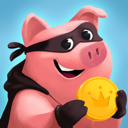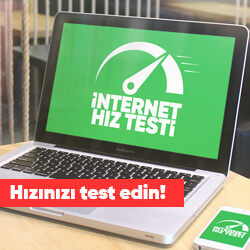We Lastly Have Some Onerous Information on How A lot Twitter Sucks
9 months after Amnesty Worldwide known as on Twitter to be extra clear about abuse on its platform, the group has printed one other research indicating that—brace your self—Twitter nonetheless has a damning on-line abuse drawback, and it overwhelmingly impacts girls of colour.
Whereas the findings are hardly shocking when you’ve even half-tuned into the platform’s discourse over the previous few years, seeing the chilly, exhausting numbers is a sobering reminder of Twitter’s hellish actuality. The research, carried out in tandem with software program firm Factor AI, discovered that black girls have been 84 % extra probably than white girls to be included in an abusive or problematic tweet. “One in ten tweets mentioning black girls was abusive or problematic,” Amnesty writes, “in comparison with one in fifteen for white girls.”
To conduct the research, over 6,500 volunteers from 150 international locations waded by 228,000 tweets despatched to 778 girls politicians and journalists throughout the U.S. and the UK final 12 months. In complete, researchers estimate that over the course of the 12 months, a problematic or abusive tweet was despatched to the girl volunteers each 30 seconds, on common.
“The report discovered that as an organization, Twitter is failing in its duty to respect girls’s rights on-line by failing to adequately examine and reply to reviews of violence and abuse in a clear method which leads many ladies to silence or censor themselves on the platform,” Amnesty writes.
The important thing findings from Amnesty’s so-called “Troll Patrol challenge” aren’t essentially world-shattering—Twitter’s rampant toxicity has been a darkish and slimy cornerstone of the service for years. However they add hard-earned information to the criticism that Twitter nonetheless can’t get a deal with on its worst customers, which in flip negatively impacts probably the most marginalized folks on its platform.
In accordance with the research, girls of colour have been 34 % extra probably than white girls to be talked about in an abusive or problematic tweet. It additionally discovered complete of seven % of tweets mentioning girls journalists have been problematic or abusive, in comparison with 7.12 % of tweets mentioning politicians. And the tweets thought of on this research don’t even embrace deleted tweets or ones from accounts Twitter suspended or disabled final 12 months—probably the worst and most blatant examples.
“By crowdsourcing analysis, we have been in a position to construct up very important proof in a fraction of the time it could take one Amnesty researcher, with out shedding the human judgment which is so important when context round tweets,” Milena Marin, Senior Advisor for Tactical Analysis at Amnesty Worldwide, stated in an announcement.
Amnesty defines abusive tweets as these which “embrace content material that promotes violence in opposition to or threats to folks primarily based on their race, ethnicity, nationwide origin, sexual orientation, gender, gender identification, spiritual affiliation, age, incapacity, or severe illness,” which might embrace “bodily or sexual threats, needs for the bodily hurt or dying, reference to violent occasions, habits that incites concern or repeated slurs, epithets, racist and sexist tropes, or different content material that degrades somebody.”
Problematic tweets, however, “include hurtful or hostile content material, particularly if repeated to a person on a number of or events, however don't essentially meet the edge of abuse” and “can reinforce destructive or dangerous stereotypes in opposition to a bunch of people (e.g. destructive stereotypes a couple of race or individuals who observe a sure faith).”
As Amnesty notes, abusive tweets violate Twitter’s insurance policies however problematic ones are extra nuanced and aren’t all the time in violation of the corporate’s insurance policies. The group nonetheless determined to incorporate them on this research as a result of, Amnesty writes, “you will need to spotlight the breadth and depth of toxicity on Twitter in its numerous kinds and to acknowledge the cumulative impact that problematic content material could have on the power of girls to freely expressing themselves on the platform.”
Vijaya Gadde, Twitter’s authorized and coverage lead, instructed Gizmodo in an e mail that Amnesty’s inclusion of problematic content material in its report “warrants additional dialogue,” including that “it's unclear” how the group outlined or labeled this content material and whether or not it thinks Twitter ought to take away problematic content material from its platform.
In its newest biannual transparency report, launched final week, Twitter stated it obtained reviews on over 2.eight million “distinctive accounts” for abuse (“an try and harass, intimidate or silence another person’s voice”), practically 2.7 million accounts for “hateful” speech (tweets that “promote violence in opposition to or straight assault or threaten different folks on the idea of their inclusion in a protected group”), and 1.35 million accounts for violent threats. Of these, the corporate took motion—which incorporates as much as account suspension—on about 250,000 for abuse, 285,000 for hateful conduct, and simply over 42,000 for violent threats.
Gadde stated that Twitter “has publicly dedicated to bettering the collective well being, openness, and civility of public dialog on our service” and that the corporate is “dedicated to holding ourselves publicly accountable in the direction of progress” with regards to sustaining the “well being” of conversations on its platform.
Twitter, Gadde additionally identified, makes use of each machine studying and human moderators to evaluation on-line abuse reviews. As we’ve seen clearly on different platforms like Fb and Tumblr, synthetic intelligence instruments can lack the power to know the nuances and context of human language, making it an insufficient software by itself to find out whether or not sure content material is legitimately abusive. It's the particulars of those instruments that Amnesty needs to Twitter to make extra public.
“Troll Patrol isn’t about policing Twitter or forcing it to take away content material,” Marin stated. “We're asking it to be extra clear, and we hope that the findings from Troll Patrol will compel it to make that change. Crucially, Twitter should begin being clear about how precisely they're utilizing machine studying to detect abuse, and publish technical details about the algorithms they depend on.”
- Download Twitter iOS
Download Twitter Lite Android



















